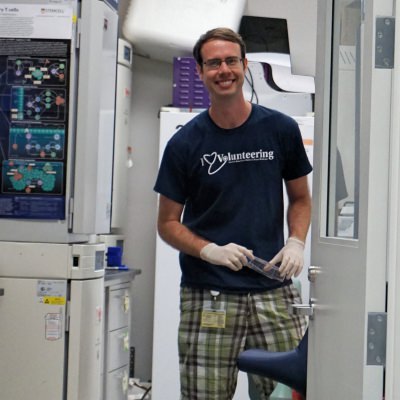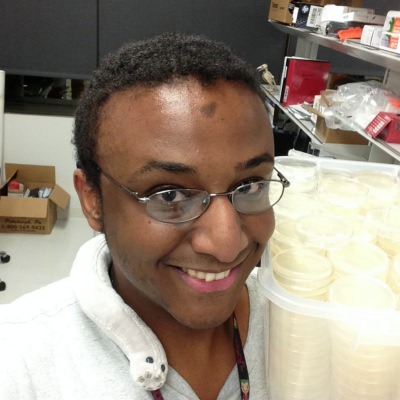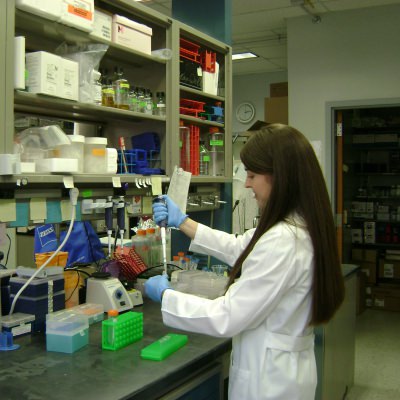What is it about science that you see as joyous and fun?
“Science should be joyous and fun,” stated
Dr. Jonathan Yewdell, chief of the Cellular Biology Section at the National Institute of Allergy and Infectious Disease
(NIAID), during his talk entitled,
How to
succeed in science without really trying.
This talk was adapted for an
essay Dr. Yewdell published in Nature Reviews Molecular Biology and a version of which
can also be viewed on
YouTube.
When speaking about this talk, which he
requested to give to trainees as a part of his visit to the
Department of Microbiology and
Immunology
, he said, “I love science and feel fortunate that someone would
pay me to do this. . . so I developed this talk.”
After being inspired myself by his passion, I reached out to
some of the trainees in attendance and asked, “What is it about science that
you see as joyous and fun?” Here is a selection of the answers I received.
Justin Drerup, M.D./Ph.D. student

“I find joy in undertaking the process of science. That is, coming up with an exciting question, perfecting the details of how to answer that question, putting in the hard work to collect data and reflecting on the sometimes unexpected results that might spring forth. It’s not all rainbows and candy though.
At times, the labor can be downright painstaking. However when I look back at the results of a project, I take great pride in the work I invested to make it happen and, most importantly, the prospect that my investment might improve patient well being in the long run.”
Philip Webster, Biology of Aging student

“I love coming in every day and working toward solving problems that will eventually help us understand nature and life a little better, which is what makes each experiment so exciting.
The feeling of accomplishment from troubleshooting, optimizing, or getting a result you didn’t expect is like nothing I’ve felt in any other part of my life.
I feel like Sherlock Holmes, but a lot cooler.”
nbsp;
Sabrina Martinez, Microbiology student

“I love that moment of discovery when an experiment (finally!) works and I get to learn something that up to that moment had been unknown or unappreciated for what it is.
I love how challenging science is for all of the right reasons. It propels me to learn constantly, challenges me to think creatively, and encourages interaction with people with whom I would otherwise have nothing in common.”
This article is part of the “Meet The Researcher” series which showcases researchers at the Graduate School of Biomedical Sciences at University of Texas Health Science Center San Antonio.
